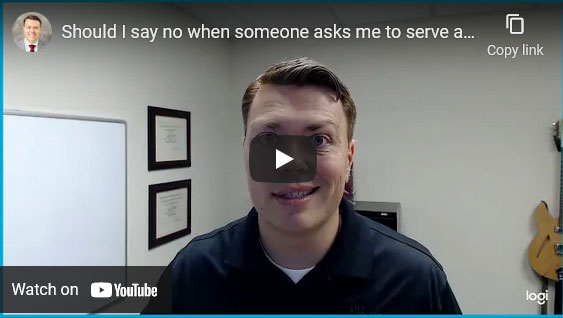Can I file Bankruptcy without My Spouse in California?
March 10, 2020Estate Planning While In Quarantine
April 10, 2020Can I file Bankruptcy without My Spouse in California?
March 10, 2020Estate Planning While In Quarantine
April 10, 2020Hi I'm Greg with The Ashcraft Firm and I'm an attorney specializing in estate planning, wills, and trusts. One of the questions that I get a lot of times when I have clients in my office is what if people do not accept the role of being in charge of some part of the estate. This actually happens quite a bit in our process when I'm sitting down with a client. I have four steps after somebody signs up. The first step is I get them a summary and the second step is they look over the summary. They can discuss the particulars of their case with the people that they want to appoint, but if you are being asked whether you can serve there are some things that you need to know before you say yes.
What is a Trustee? What is an Executor?
The first thing is what is a trustee or what is an executor? So a trustee is the boss of a trust and they're going to be taking care of the finances of the trust. An executor is a lot like that except an executor is the person who's in charge of a will. Now if somebody's asking you to be guardian that means they're asking you to tuck their kids in at night and that's just for minor children here in the state of California. A conservator is somebody who is in charge of somebody who's not a minor and that's dealt with through the court guardianship, but a parent can nominate their guardian. Those are the some things to think about, but if you're the guardian that doesn't necessarily mean that you'll be charge of the finances. If you're executive or trustee it doesn't mean if there are minor children and the person and the parent passes away it doesn't mean that you're going to be taking care of all the roles so be very clear about what it is that you're saying yes or no to before you say yes or no. There are different ways to say yes or no; it is best if you talk to these people before you have appointed them, before you've officially appointed them in your documents. So, some things to keep in mind is if it is before they have created the trust it's obviously the easiest to take you out. However, if you are put into a document, you can say no to the role of either trustee or guardian or executor and there is usually a way spelled out in the estate planning documents. Whether you are saying no to the trustee position there is a spot in the trust how you can say no, if you are saying no to either the executor position or the guardianship position then that's going to be in the will. There are ways to say no to any of those before somebody has put you in their documents or after they put you in their documents or after they've passed away there is still a way you can say no so that's why I normally recommend to my clients to talk to the people that they want to put in charge so they can say no now. This way it never gets to a point where the court needs to deal with it because if you have listed some people out and none of them will say yes then eventually somebody has to make the decision and if your estate planning documents do not say something to the contrary then it will go to the court for the court to decide and that is a lot of reasons you that you've created that estate plan. If somebody is asking you to be trustee, you do not have to know all the legal and financial issues that will come up you can actually use funds from the trust to pay for help in those areas.
What is Probate? What is Trust Administration?
I often assist people in doing either trust administration or probate. A probate is something you do for a will. A trust administration obviously is administering a trust so you can get help with those really specific legal financial issues. Now it does require you to follow the terms of the trust or follow the terms of the will depending on whether it's a trustee or an executorship. You are required to be organized and so you're required to do things in an orderly fashion. If somebody is asking you to administer a plan, it is fair to ask them what is in the plan, it's fair to ask them to go over it with you or to look at it because different plans are either more or less complex. You do need to consider the complexity of the estate. The complexity of the issues such as if they have a special needs child, being trustee is going to be a lot bigger job than if you are just gathering everything up and then distributing it. You will have to keep things in the trust for that special needs beneficiary’s lifetime so that is something to keep in mind. People hesitate to say no, but it is better to say no now so that these people can make different accommodations. Another thing to keep in mind is how close you are to the estate if it's across the country it's going to be more difficult to administer the estate for this person. If you are nearby, you know that makes it a little bit easier to administer the estate. Those are a few things to consider when you are determining whether you want to take on the role of trustee or the role of executor. There's issues with guardianship, how well do you know the kids, would you have to move the kids out of their home, or would you be able to take care of them in their home? Those are things to consider if you have been asked to be the guardian. You can also call us if you need help with things like appointing a guardian, determining whether you want to be a guardian, a trustee, or an executor. Thanks so much, I’m Greg with The Ashcraft Firm.




